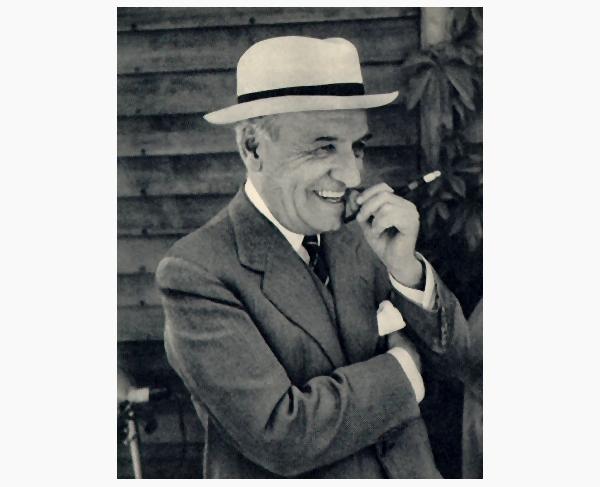
José Ortega y Gasset was a Spanish philosopher and essayist, professor of the University of Madrid and founder of the magazine Revista de Occidente. Ortega y Gasset's writings range over history, politics, aesthetics and art criticism, as well as the history of philosophy, metaphysics, epistemology and ethics. In 1929 Ortega published one of his best known works, The Revolt of the Masses, where he characterized the 20th-century society as dominated by masses of mediocre and indistinguishable individuals. Ortega's ideas converged those of other 'mass society' theorists such as Karl Mannheim, Erich Fromm and Hannah Arendt.
"Minorities are individual or groups of individuals especially qualified. The masses are the collection of people not specially qualified." (from The Revolt of the Masses, 1930)
José Ortega y Gasset was born in Madrid. He studied at a Jesuit school in Miraflores, Málaga (1891-97) and University of Deusto, Bilbao (1897-98), University of Madrid (1898-1904), receiving his Ph.D. in philosophy in 1904. He continued his studies in the universities of Berlin, Leipzig and Marburg (1905-07), a center of neo-Kantianism, and worked two years as a professor of at Escuela Superior del Magisterio. In 1910 he was appointed professor of metaphysics at Central University of Madrid (1910-1936). Ortega married Rosa Spottorno Topete in 1910; they had three children.
In 1908 Ortega founded the journal Faro. He was founder of Espãna review (1915-23), and Revista de la Occidente (1923-36), and cofounded El Sol. In 1914 Ortega was elected to the Royal Spanish Academy of Moral and Political Sciences. He was also a cofounder of League of Political Education. With Ramón Pérez de Ayala and Gregorio Marañón, he founded Group at the Service of the Republic in 1931.
A liberal in politics, he opposed Primo de Rivera's dictatorship (1923-30) and resigned from his post as professor in protest against the military dictator. Ortega was convinced that the monarchy could not any more unite the Spaniards toward a common goa, and he became a Republicanl. After the fall of Rivera and the abdication of King Alfonso XIII, Ortega sat in the constituent assembly of the Second Republic from 1931 to 1932, and he was deputy for the province of León and Civil Governor of Madrid. One year as an elected representative to the parliament made Ortega disillusioned, he withdrew and kept a pointed silence about Spanish politics from then on.
During the Spanish Civil War (1936-39) Ortega was a voluntary exile in Argentina and Europe, unwilling to support either side or hold academic office under Franco. From 1941 he was a professor of philosophy at the University of San Marcos, Lima. After the World War II he returned in Spain and founded the Institute of Humanites in Madrid, but lack of support led to its closing after two years. He lectured frequently in Germany, Switzerland, and the United States. In 1949 he was invited to the Center for the Humanites in Aspen, Colorado. Ortega died in Madrid on October 18, 1955.

 Request for offer
Request for offer